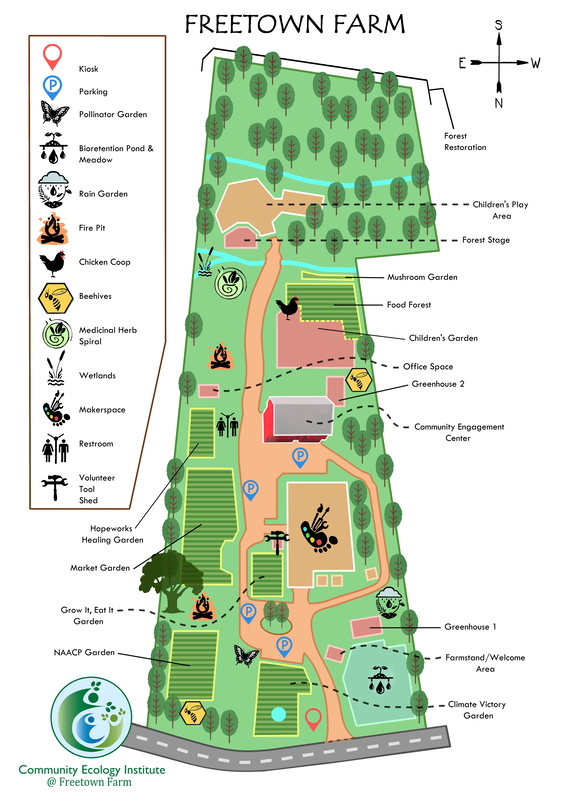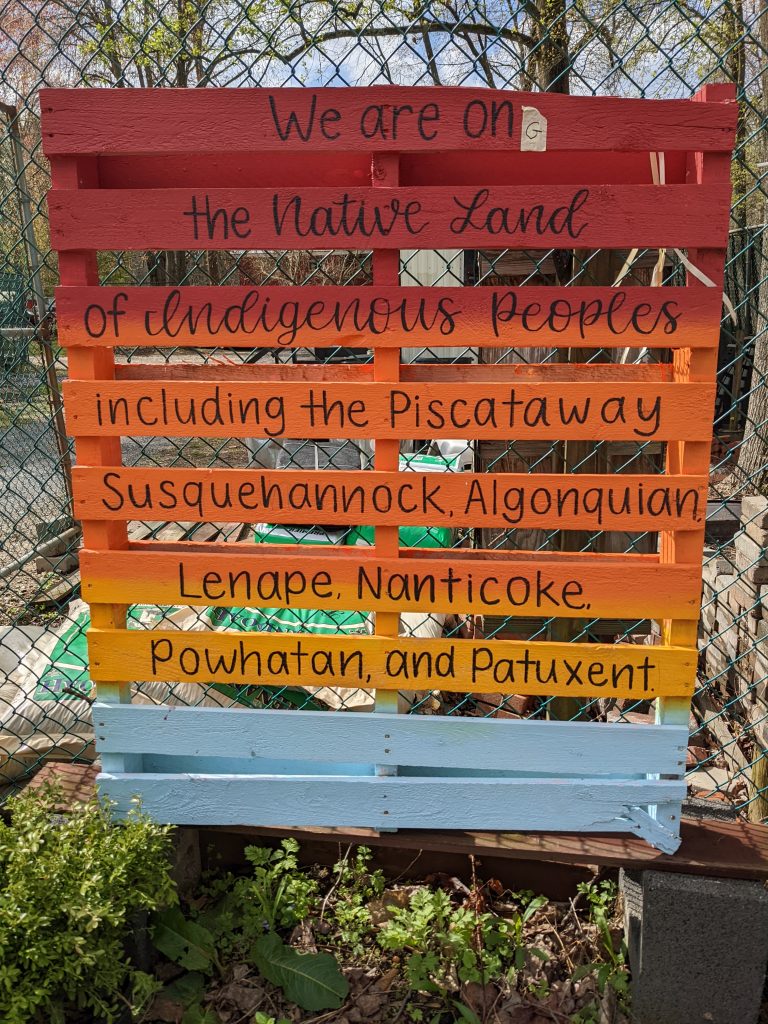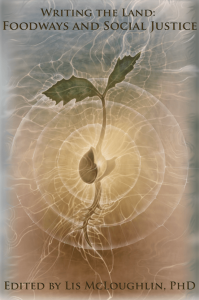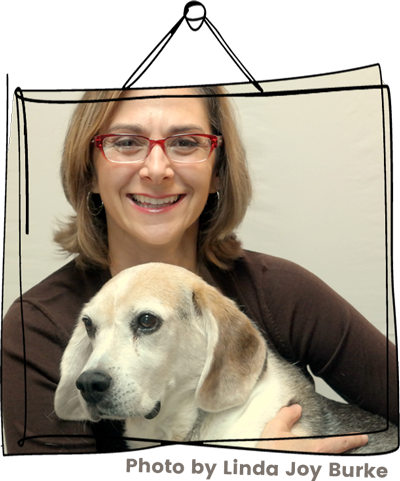
Thank you, Poetry Friday friends, for all of your kind comments on last Friday’s blog post. Looking back, 2022 had more than the usual losses and upheavals. But it also had bright moments. One of my favorite projects of 2022 was writing a series of poems for Nature Culture’s Writing the Land Series. This organization pairs poets with local-to-them land trusts, to highlight our deep and abiding relationship with the soil, the forests, the farms.
Even though it is not a land trust, I asked the organizer, Lis McLoughlin, if I could partner with a local teaching farm, the Community Ecology Institute in Columbia, Maryland. It is an amazing non-profit, preserving historic Freetown Farm in a suburban neighborhood. CEI now has teaching gardens, community gardens for groups like the local NAACP, workshops for homeschoolers, and a wooded area for forest baths.

Today, I am giving away two copies of Writing the Land: Foodways and Social Justice, edited by Lis McLoughlin. Just let me know in the comments that you would like a copy. I’ll mail out a book to the first two raised hands (U.S. only please.)
After many visits to the farm, poet Patti Ross and I each contributed three poems to a chapter about Community Ecology Institute. The chapter highlights how the farm works at the intersection of food and social justice. The chapter includes an essay about CEI by its founder, Chiara D’Amore, my poem “On Seeing a Proliferation of Mayapples at Freetown Farm” (listen here), and two interviews / found poems I did with CEI staff: “Blueberries” with CEI Nourishing Gardens Program Director Theresa Taylor, and “Skunk Cabbage” with Chiara.
But Patti and I wanted to do something more, something collaborative. She suggested a haiku-related form, the Mondo, works as a series of questions and responses. Each of us wrote several short poem-questions to which the other responded. This mondo reflects our shared wonderings about Freetown Farm’s history as a free Black community and stop on the Underground Railroad.
Here is that poem.
Writing the Land Mondo
By Patti Ross and Laura Shovan
Patti’s Questions & Laura’s Responses
How can the roots of
a cherry tomato plant
hold the weight of poverty?
Nourished soil is rich
with nutrients, water, sun—
nourished humans thrive like vines.
On knees, weeding, what
societal albatross have
we fought to unearth today?
Backs exposed to sun—
memory of growing food
in pogroms and plantations.
The Red-winged blackbird
watches Harriett; did she just
whisper the route to freedom?
Follow her red flash:
a sash tied to a low branch,
a quilted curve of crimson.
Will we find fertile
seeds of social justice in
the terse catechism of plants?
Rows of collards, kale—
a psalm composed of new life
feeds our souls, fills our bellies.
Laura’s Questions & Patti’s Responses
When you put your hands
in farm soil, what legacy
gets trapped underneath your nails?
The tears of Tribal
leaders and the bloody sweat
of African Kings.
If this land could speak
its history, what stories
would its dark, tangled roots spell?
Worthington, Clark, Shaw,
17 humans enslaved until free.
Tubman unafraid.
Who walked here, who worked,
hid, and died on Freetown’s fields?
Whose lives make this land fertile?
Brits, Indigenous,
enslaved and free. All ate of
the native persimmon trees.
Other chapters in Writing the Land: Foodways and Social Justice include:
Sustainable Iowa Land Trust (Iowa)
Downeast Salmon Federation (Maine)
Peconic Land Trust (New York)
Agrarian Land Trust (Nationwide)
Northeast Farmers of Color (Northeast US)
Poetry X Hunger
and more
The Writing the Land initiative is an annual program. If you’d like to get involved, your first stop is the sign up form on the WTL website.







Wow, Laura, what a heart-warming post you’ve written, so filled with other links to delve into, raising questions of past heroics and how they managed, what people there are doing to make change, to meet needs. Something that caught me imagining garden plots, of past and now, was that mention of the “Red-winged blackbird/[that] watches Harriett”. From the POVs of other creatures, what would they tell us? I’d love to have a copy of the book with yours and Patti’s poems. Thanks for every bit.
Hi, Linda. Your book is on its way to you! Thank you for this lovely comment. There are always surprises in collaboration. Working on this poem with Patti stretched me.
Thanks for this wonderfully rich post Laura, I love the joint poem you and Patti wrote together.
I especially liked these three stanzas
“On knees, weeding, what
societal albatross have
we fought to unearth today?
Backs exposed to sun—
memory of growing food
in pogroms and plantations.”
and the last two stanzas also.
I hope the anthology reaches many eyes and brings about change! I’d also value having a copy of this dynamic and timely poetry book, thanks!
Hi, Michelle. Your book is on the way — I hope in time for Hanukkah!
Laura, this is a powerful post. You are such an inspiration. I love how your poetry works and works. Thank you for participating in this project. It’s so in line with Michelle’s post about how art is working even in the midst of war. I’m already looking forward to February! I hope you will still be able to host the February group? If not, it’s OK. Take care, friend. Hugs.
Hi, Linda. Art is a form of resistance and truth telling, yes.
We are definitely doing the February poetry project. I even have a theme ready! I will be looking for someone to admin the group for one week while I’m traveling. More about that coming soon.
Your collaborative Foodways & urban farm project lifts my spirit, Laura. I especially like thinking about:
“The Red-winged blackbird
watches Harriett; did she just
whisper the route to freedom?’
All the creatures watched by & that watched, Freedom-Seekers, UR Conductors, such as Harriet Tubman, are worthy of my thoughts.
This also reminds me of Sharon Lovejoy’s poetic novel, Running out of Night, which connects deeply with the creatures & plant communities [both footways & medicinal] of enslavement times.
More connection – recently an editor & author from my non-fiction book work connected me to your wonderful editor Lis. So,, altho first indications are that local/regional land trusts may not be able to join Writing the nourishing Land/NatureCulture program, your inventive collaborative plan gives me an idea!
Appreciations, appreciations, appreciations.
Wishing you a #slowChristmas #calmDecember & much Joy to Your World.
🙂 “foodways”
#HanukahLights 🙂
Thank you, Jan! I’m so glad to know that you’re connected with Lis. It’s amazing to me when people bring projects like CEI and like Writing the Land into being.
I think Terri Carrion is working on something with Lis in your area.
What an amazing project. I love your collaborative poem, especially your answer about Harriet Tubman. No wonder this project fed your soul!
Thanks for stopping by, Laura. The Community Ecology Institute and Freetown Farm — I feel like every community should have a resource like this.
Wow, Laura, I live in Columbia and know NOTHING about this place. Thankfully I have you to motivate me to get out of my house and live a writer’s life! This collaborative poem you have written with Patti is haunting and powerful. Every single stanza is something to meditate on for a long time and, taken together, it leaves me speechless.
Hi, Marilyn! I’d love to run a poetry workshop at CEI sometime. You must go visit — they even have plant sales in the spring and summer. (Good to see you this week. I’m so glad you came out to Wilde Readings.)
What a wonderful project, full of hope and history, echoes of past and glimmers for the future.
Hi, Margaret. Although I didn’t share them here, I enjoyed interviewing Chiara and Theresa and creating found poems. They both speak about plants and food with such a sense of wonder.
I so want to visit this farm now! I love the mondo you and Patti wrote. All of your questions are deep and probing, and your answers are uplifting and glorious. Like Linda M. said, it is inspiring to see how your art gives and gives and gives.
Mary Lee — COME VISIT! You are welcome anytime. Secret garden, Freetown farm, DC museums.
Laura, I am enthralled with this project and the poem you and your colleague wrote. Writing the Land should be placed in schools and libraries as a significant social justice book for students to explore. I would love to share this with the teachers I am working with on Zoom. Our next session in February is on Poetry. I especially like this question: If this land could speak
its history, what stories
would its dark, tangled roots spell?
This would make an interesting question to pose in both ELA and SS classrooms. Thank you for sharing the information and your involvement in the project..
Hi, Carol. Oh — wouldn’t it be wonderful to have a kid’s version of the writing the land project. Yes, please feel free to share this with your educators group. Maybe this could be an Ethical ELA post?
What an amazing project! Your poems are powerful!
Thanks, Marcie!
What a cool project! And such a fitting collaboration to accompany it. Congrats!
Thanks, Susan! I was honored to be part of this.
I love the idea of writing from the perspective of the farm, its nourishment for peoples, and especially the consideration in your Mondo of the wonderings you share as you worked together. Thank you for showing this to us!
Thanks, Patricia. The whole process of working on these poems, collaborating with Patti, visiting the farm, was nourishing!
Oh, this is amazing, Laura! You’re such an inspiration. You just keep going. Love your collaboration with Patti Ross and this whole story. And again, many condolences on the loss of your dear friend Michael.
Thanks, Karen. I believe in poetry as a social justice tool. Michael did too.